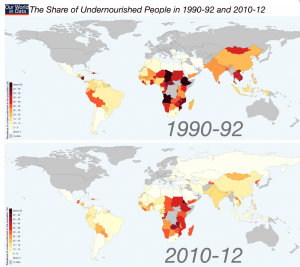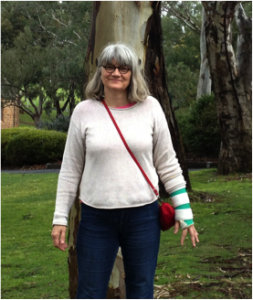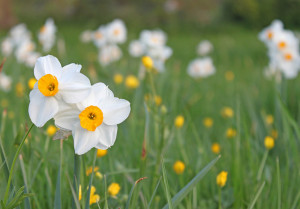
Credit: Tejvan Pettinger. Used under license: CC BY 2.0.
As popular British botanist (and GPC blog guest) James Wong wrote in the UK’s Guardian newspaper earlier this year: “gardening is good for you”. Ask most people how they can benefit from gardening, and they might suggest improved physical activity or stress relief, but this is only scratching the surface.
The People Plant Council (PPC) is an international group of researchers and other industrial and not-for-profit partners, which aims to understand the effects plants have on our well-being. By communicating its findings to affiliates and the public, the PPC encourages the translation of these findings into health-enhancing programs. The PPC was established after a 1990 symposium entitled, “The Role of Horticulture in Human Well-Being and Social Development”, which identified a need for scientific research into the influence of horticulture on human health and quality of life.
The benefits of plants
The earliest reports of horticulture being used to improve human health come from ancient Egypt, where members of royalty were prescribed walks through the palace gardens as a treatment for mental illness (1). Today, research from the PPC and others has identified wide-ranging psychological, physiological, and sociological benefits from plants.
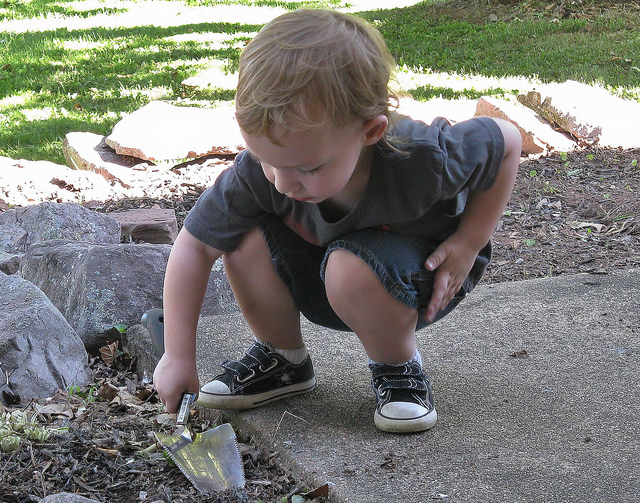
Gardening is good for both physical and mental health. Credit: Shyn Darkly. Used under license: CC BY 2.0.
The physiological benefits of gardening include an increase in physical activity (and the resulting improvements in cardiovascular fitness, muscle strength and aerobic capacity), but there are also some less obvious benefits, including better hand-eye coordination, balance, and an improvement in some chronic diseases. In one PPC-led study, elderly women took part in 50-minute gardening sessions twice a week, which led to significant improvements in their dexterity, muscle mass and cognitive ability compared to a control group (2).
There are also significant psychophysiological benefits to horticulture. Two interesting studies found that exposure to soil – or more precisely, to a common bacterium in soil (Mycobacterium vaccae) – improved the quality of life for both human cancer patients and mice by inducing the production of the brain’s “happy chemical”, seratonin (3,4). Contact with nature has also been shown to improve memory, concentration and stress.
People connect with each other around plants; whether it’s admiring a friend’s garden, giving a partner some flowers, or sharing a picnic at the local park, most of us have experienced the sociological benefits of plants. A PPC-led study found that horticulture was brilliant for improving peer relationships in schools too; a collaborative gardening program for small groups of 12–13 year-olds led to meaningful friendships that persisted after the class ended. The gardening students were also more law-abiding and social than the control group.
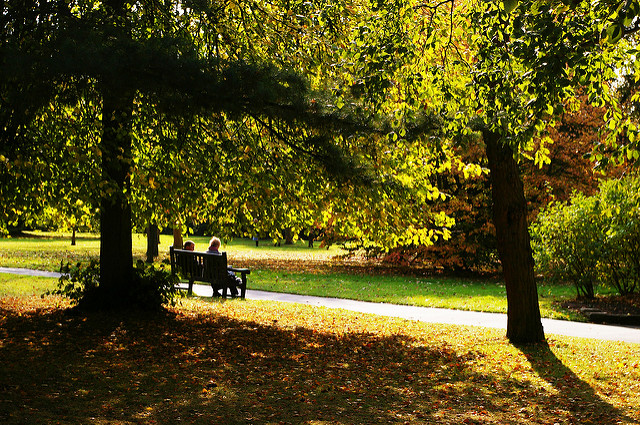
People bond over the experience of enjoying nature together. Credit: Amelia Wells. Used under license: CC BY 2.0.
Communicating findings
As well as publishing scientific research articles, the PPC team, led by Professor Candice Shoemaker (PPC Executive Chair) and Dr Sin-Ae Park (PPC Executive Co-Chair), communicates the benefits of plants and horticultural science to other researchers, funders and the wider public via a newsletter, blog posts, and through a biannual conference, the International People Plant Symposium (IPPS).
At the IPPS meetings, delegates address the inherent impacts of nature on every aspect of our lives, including physical and mental health, and education. Dr Park elaborated, “The IPPS is attended by researchers, practitioners (such as horticultural therapists), and educators in various fields such as horticultural science, ethnobotany, psychology, nursing, occupational therapy, etc. The International Society for Horticultural Science supports the PPC, and enables us to publish the IPPS proceedings in their journal, Acta Horticulturae”.
The 2016 IPPS, ‘Plants, Cultures and Healthy Communities’, will be held in November in Uruguay.
Thanks to Dr Sin-Ae Park for providing information on the activities of the People Plant Council that informed this blog post.
References
- Park, S-A., Lee, A-Y., Lee, G-J., et al., 2016. Horticultural activity interventions and outcomes: a review. Korean Journal of Horticultural Science and Technology, 34, pp.513-527.
- Park, S-A., Lee, A-Y., Son, K-C., Lee, W-L. and Kim, D-S., 2016. Gardening intervention for physical and psychological health benefits in elderly women at community centers. HortTechnology, 26(4), pp.474-483.
- Lowry, C.A., Hollis, J.H., de Vries, A., et al., 2007. Identification of an immune-responsive mesolimbocortical serotonergic system: Potential role in regulation of emotional behavior. Neuroscience, 146(2), pp.756-772.
- Stanford, J.L., Stanford, C.A., O’Brien, M.E.R. and Grange, J.M., 2008. Successful immunotherapy with Mycobacterium vaccae in the treatment of adenocarcinoma of the lung. European Journal of Cancer, 44(2), pp.224-227.





